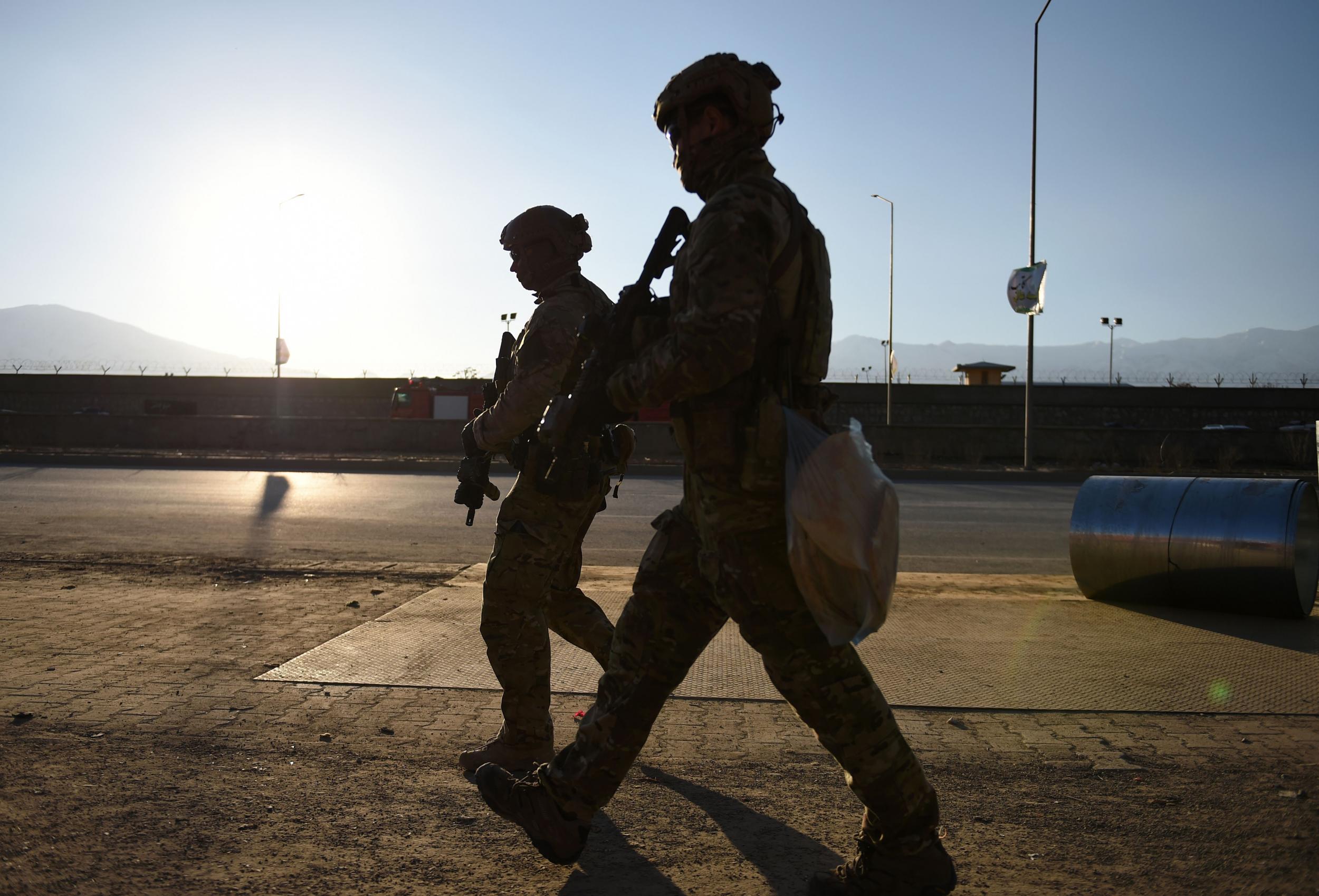Trump gives Pentagon total authority over troop levels in Afghanistan
Defence Secretary James Mattis has said the US is 'not winning' the war

Your support helps us to tell the story
From reproductive rights to climate change to Big Tech, The Independent is on the ground when the story is developing. Whether it's investigating the financials of Elon Musk's pro-Trump PAC or producing our latest documentary, 'The A Word', which shines a light on the American women fighting for reproductive rights, we know how important it is to parse out the facts from the messaging.
At such a critical moment in US history, we need reporters on the ground. Your donation allows us to keep sending journalists to speak to both sides of the story.
The Independent is trusted by Americans across the entire political spectrum. And unlike many other quality news outlets, we choose not to lock Americans out of our reporting and analysis with paywalls. We believe quality journalism should be available to everyone, paid for by those who can afford it.
Your support makes all the difference.Donald Trump has given the Pentagon complete authority to set troop levels in Afghanistan, hours after his Defence Secretary suggested the US was losing the war.
Defence Secretary James Mattis told Senate Appropriations Subcommittee on Defence that the President had delegated him complete authority over the number of troops, as he had previously done for the conflicts in Syria and Iraq.
The day before, Mr Mattis had told the Senate Armed Services Committee that the US was “not winning” the war in Afghanistan.
“The Taliban had a good year last year, and they’re trying to have a good one this year,” he said. “Right now, I believe the enemy is surging.”
Many felt the Secretary was hinting he wanted to send more troops to the country. General John Nicholson, the top US commander in Afghanistan, said earlier this year that he needs “a few thousand” more troops in the fight against Isis, the Taliban, and other militant groups.
In a statement on Wednesday, however, Mr Mattis said his newfound authority "does not in itself change the force levels for Afghanistan".
"Rather, it ensures the Department of Defence can facilitate our missions and align our commitment to the rapidly evolving security situation, giving our troops greater latitude to provide air power and other vital support," the Secretary continued.
The number of troops in Afghanistan was capped at around 8,400 under President Barack Obama – a significant drop from the 100,000 he deployed in 2011.
Some in the Pentagon have complained that the Obama White House’s troop management system prevented them from acting quickly, and obscured the true number of troops in the country. In some instances, the military would call in private contractors or temporary forces to avoid exceeding Obama-imposed troop limits.
Critics of Mr Trump’s plan, however, feel it represents the President’s growing leniency with the military.
As a private citizen, Mr Trump railed against the wars in Afghanistan and Iraq, calling them a “waste” of lives and money. As President, however, Mr Trump has increasingly deferred to military leaders in making strategic decisions.
The former businessman quickly agreed to launching an air strike on Syria in April, and subsequently handed over control of troop levels in both Syria and Iraq to the Pentagon.
Ned Price, senior director of the National Security Council under Mr Obama, added that the decision to deploy troops should be made in concert with political, economic, and development agencies – not just the military.
“Failing to do so can be a detriment to our strategic goals for the country or region in question and, in places where brave Americans are deployed, place our men and women in uniform at greater risk,” Mr Price told The Independent.
More than 2,300 Americans have been killed and more than 17,000 have been wounded in Afghanistan since the war began in 2001.
Mr Mattis told the Armed Services Committee he hoped to brief them on a new plan by mid-July.
Join our commenting forum
Join thought-provoking conversations, follow other Independent readers and see their replies
Comments